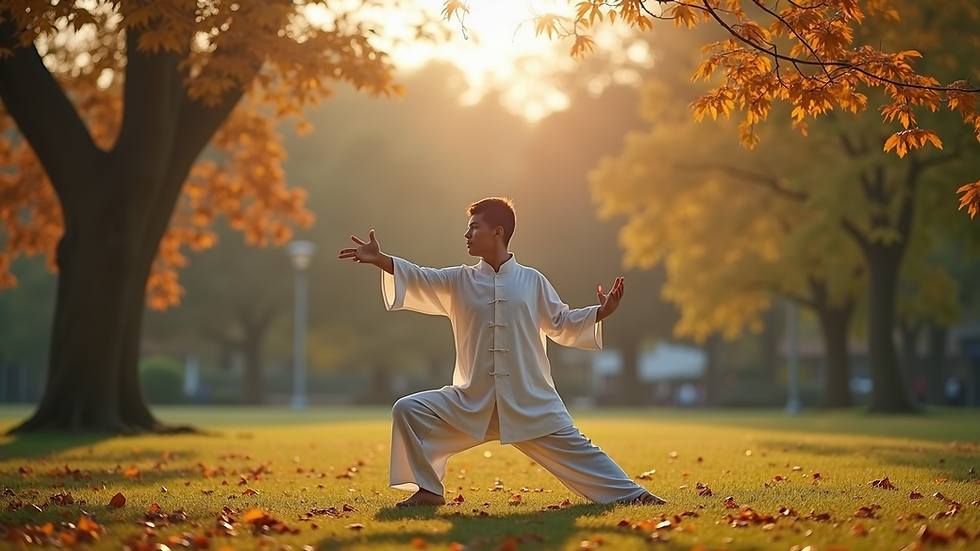Misconceptions About Tai Chi that You Still Believe
- Mindful Wellness YOGA TAICHI

- Aug 24, 2024
- 2 min read
Updated: Aug 28, 2024
Tired of hearing the same old myths about Tai Chi? Let's set the record straight and discover the incredible benefits of this ancient practice.
Myth 1:
Tai Chi is Just for Seniors
Don't be fooled! Tai Chi is a versatile practice that benefits people of all ages.
For everyone from children to seniors, Tai Chi offers a gentle yet effective way to enhance physical and mental well-being.
Studies have shown that Tai Chi can help reduce the risk of falls in older adults, leading to improved quality of life and independence.
Athletes like Serena Williams and Kobe Bryant have incorporated Tai Chi into their training regimens to improve flexibility, balance, and mental focus.

Still not Convinced with me, check this post from Jayne Storey the Bestselling author, and sports performance coach. Check out Here.
Myth 2:
It's All Slow and Gentle Movements
Sure, Tai Chi involves slow, flowing movements, but it's not just about going through the motions.
Behind those graceful movements lies a powerful internal energy that can help you tap into your inner strength and vitality.
Tai Chi also incorporates faster movements that can improve your agility, reaction time, and even explosive power.

A study published in the Journal of Strength and Conditioning Research found that Tai Chi improves young adults' muscle strength and physical endurance.
Myth 3:
Tai Chi Isn't a Martial Art
Don't be fooled! Tai Chi has a rich martial arts heritage, and its principles can be applied to self-defense.
While it may not be as aggressive as other martial arts, Tai Chi teaches you how to use your body's natural energy to neutralize attacks and protect yourself.

Tai Chi's emphasis on balance, coordination, and timing makes it a valuable tool for self-defense.
The principles of Tai Chi can also be applied to other martial arts and combat sports.
Myth 4:
It's Only About Physical Exercise
Tai Chi goes far beyond physical exercise. It's a holistic practice that integrates both mind and body.
By practicing Tai Chi, you can reduce stress, improve your mood, and find inner peace.

Research has shown that Tai Chi can help reduce symptoms of depression, anxiety, and insomnia.
The benefits of Tai Chi extend beyond physical health and have a profound impact on your overall well-being.
Myth 5:
Tai Chi is Too Difficult to Learn
Don't let the complexity of the movements scare you off. Tai Chi is a gentle practice that's accessible to people of all fitness levels.

With a little patience and practice, you'll be surprised at how quickly you can learn the basics.
Tai Chi is taught progressively, starting with simple movements and gradually building on them.
The key to learning Tai Chi is to have a qualified instructor who can guide you through the practice.



Comments